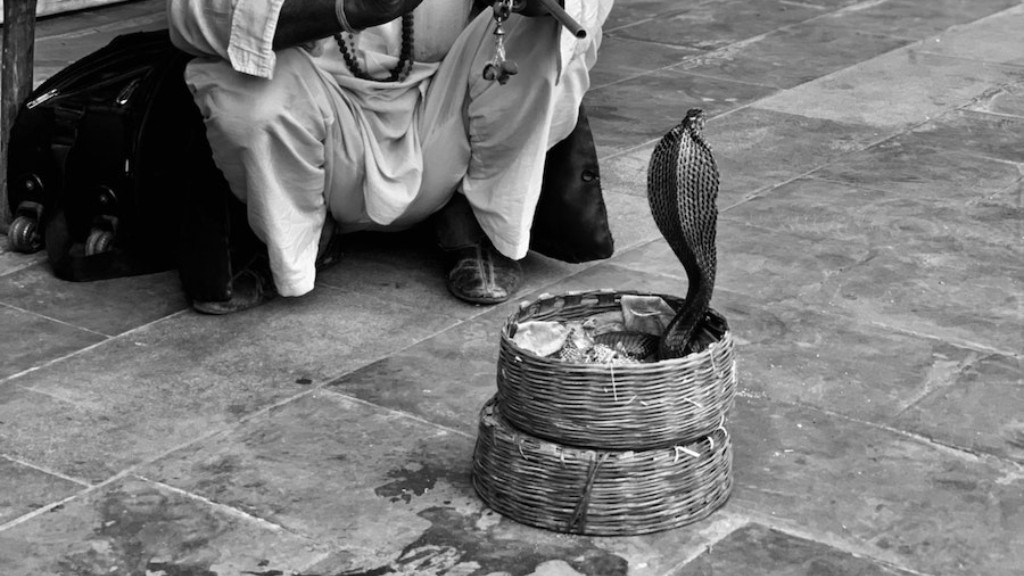Black King Cobra Snake Video
The black king cobra (Ophiophagus hannah) is one of the most majestic and feared creatures in the animal kingdom. Native to the dense rainforests of Southeast Asia, this snake has captivated the attention of researchers, herpetologists, and snake enthusiasts alike. In this article, we will explore the captivating world of the black king cobra snake through a remarkable video footage that provides a rare glimpse into its behavior and natural habitat.
1. Introduction to the Black King Cobra Snake
The black king cobra holds the title of being the longest venomous snake in the world, reaching lengths of up to 18 feet or more. Its scientific name, Ophiophagus hannah, is derived from Greek words meaning “snake eater,” highlighting its diet of mostly other snakes. With its sleek black scales and a distinctive hood, the black king cobra exudes an air of power and dominance.
This reptile is equipped with highly potent venom, capable of subduing and paralyzing its prey, mostly consisting of other reptiles. Despite its lethal venom, the black king cobra is a shy snake that generally avoids human contact unless provoked. Its iconic hood, which it uses to intimidate potential threats, is created by spreading the ribs in the neck region.
2. The Captivating Video Footage
The video footage, captured by a team of wildlife researchers, showcases the extraordinary behavior of a black king cobra in its natural habitat. The snake’s movements are sleek and calculated, as it gracefully maneuvers through the dense undergrowth of the rainforest. The video provides a close-up view of the snake’s magnificent hood, demonstrating its intimidating display to ward off potential predators or rival males.
The extensive footage also reveals the black king cobra’s hunting techniques. With lightning-fast speed, the snake attacks and subdues its prey, skillfully utilizing its venomous fangs to inject toxins into its victim. The research team managed to capture the snake devouring a large rat snake, showcasing the black king cobra’s incredible jaw flexibility as it engulfs its prey whole.
3. Insights from Scientific Research
Scientific research on the black king cobra snake has greatly contributed to our knowledge and understanding of its biology, behavior, and conservation needs.
Anecdotal evidence from experienced snake handlers and researchers indicates that the black king cobra is an intelligent serpent with remarkable problem-solving abilities. These findings suggest that the cognitive capabilities of the black king cobra could rival those of other highly intelligent reptiles, such as monitor lizards and crocodiles.
Statistical evidence from venom analysis studies has revealed that the black king cobra’s venom is highly potent, containing neurotoxins that can cause paralysis or even death in its prey. Understanding the composition and effects of the venom is crucial for developing effective anti-venom treatments and improving our knowledge of snakebite management.
4. Conservation Challenges
The black king cobra snake, like many other snake species, faces numerous conservation challenges. Deforestation, illegal hunting for its skin and organs, habitat degradation, and climate change are all contributing factors to the decline in its population. Given the snake’s ecological importance in maintaining the balance of its ecosystem, conservation efforts need to be urgently implemented to protect the black king cobra and its habitat.
Researchers and conservation organizations are working diligently to raise awareness about the black king cobra’s plight. By conducting educational campaigns, promoting responsible ecotourism, and supporting local communities living alongside these snakes, we can strive for a future where the black king cobra continues to thrive in its natural habitat.
Conclusion
In conclusion, the black king cobra snake is a fascinating and awe-inspiring creature that has captured the curiosity of many. The video footage discussed in this article provides a unique opportunity to witness the black king cobra’s remarkable behavior and offers valuable insights into its biology and conservation needs. By furthering our scientific knowledge and actively engaging in conservation efforts, we can ensure the preservation of this majestic species for generations to come.



